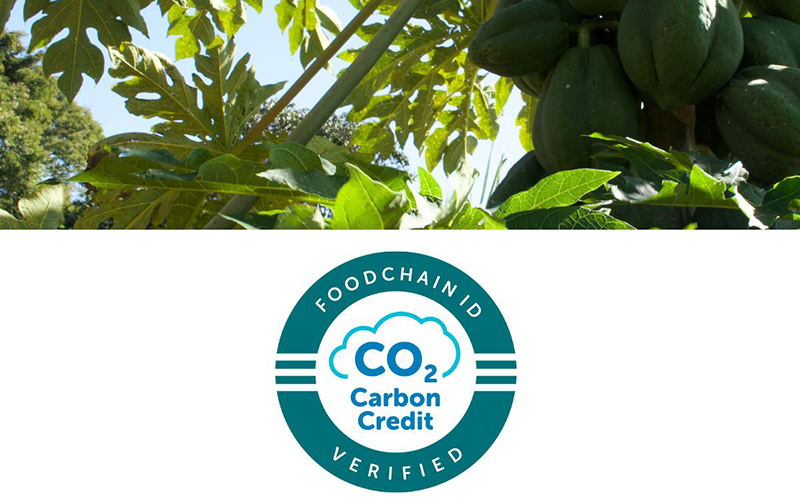ReSeed and FoodChain ID announce ground-breaking partnership that promotes transperancy for sustainable practices in the global agri-food supply chain
FoodChain ID, a pioneer in global sustainability certification, and ReSeed, the first provider of full lifecycle carbon credit traceability, have announced a partnership …

FoodChain ID, a pioneer in global sustainability certification, and ReSeed, the first provider of full lifecycle carbon credit traceability, have announced a partnership to increase transparency in measurement and verification of sustainable practices in the agri-food supply chain. With the goal to support a healthy planet, the partnership will leverage each company’s unique, world-class expertise to incentivise, measure and verify the progress of carbon sequestration through regenerative agriculture practices under a new carbon credit verification standard.
The food and agriculture industry currently contributes over one-third of the total global greenhouse gas emissions, according to the United Nations. However, less than 1 % of carbon credits on the market are sourced from agriculture.1 As consumer awareness of the industry’s role in accelerating global warming has grown, food companies have responded with more sustainable products and product claims. In fact, on-pack carbon emission contribution claims for new products grew at 33 % CAGR between July 2018 and June 2023,2 making such claims one of the fastest growing sustainability claim categories in food and beverage. In response to the claim proliferation, the carbon credit verification partnership is designed to increase measurement transparency and accountability for sustainability progress and carbon credit offsets in the agri-food supply chain.
Additionally, the carbon credit verification partnership incentivises farmers to invest more in regenerative agriculture practices while complying with European Union deforestation-free regulatory requirements (EUDR). Finally, by combining the program with other farm-level audits, such as Organic (EU, USDA and others), GLOBALG.A.P., RTRS, RSPO, Bonsucro or ProTerra, the program offers efficiencies for farmers. The first joint programs have launched with close to a thousand farmers in Brazil to implement deforestation-free, regenerative practices.
ReSeed, with its AI-powered digital ledger transparency platform, will collect and process data for carbon credit measurement protocols to allow monetisation and incentivisation for farmers deploying sustainable practices in the field. ReSeed’s team will also leverage their legal and technical knowledge to validate carbon estimates under international standards and provide field technical assistance to sort eligible farmers based on sustainability standards for farming activities.
FoodChain ID, with over 25 years of experience in global sustainability certifications, will serve as the exclusive verifier for the carbon credit partnership under ISO 14065 accreditation. FoodChain ID’s independent technical experts will perform yearly audits of farm practices under international sustainability standards, adding third-party credibility to the measurement of carbon sequestration in soil.
1Ivy S. So, Barbara K. Haya, Micah Elias. May 2023. Voluntary Registry Offsets Database, Berkeley Carbon Trading Project, University of California, Berkeley.
2Innova Insights/Nutrition Insights, July 2018 to June 2023.









